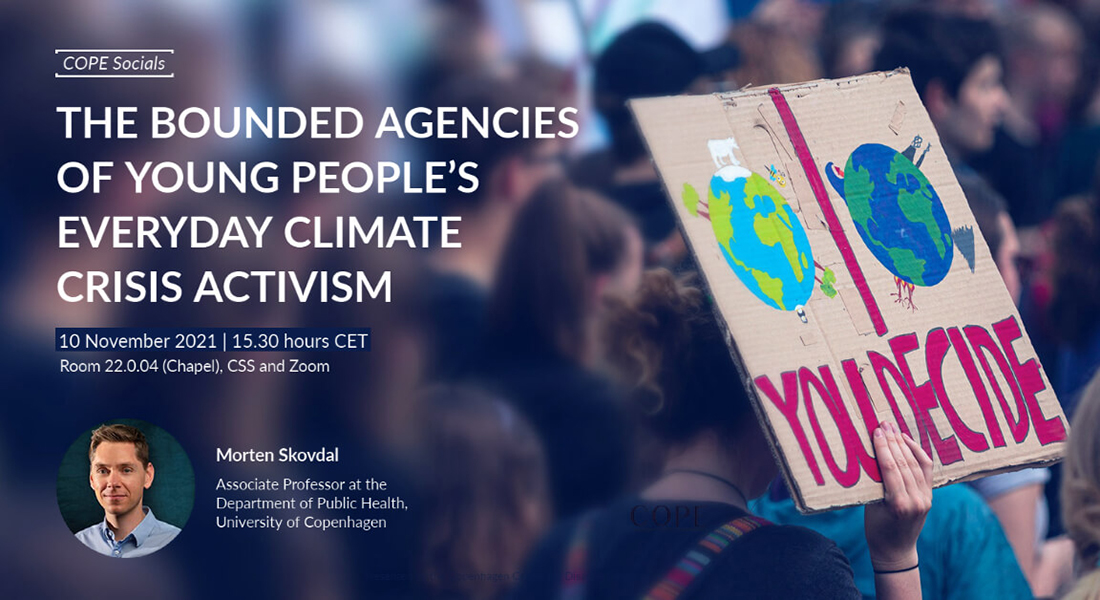Introduction to Y-ENGAGE: contextualising the study

On November 10th 2021, the Y-ENGANGE research project was introduced at an informal event at the Copenhagen Centre for Disaster Research (COPE) by the project coordinator Morten Skovdal (Associate Professor at the Department of Public Health, University of Copenhagen).
During the presentation, Skovdal situated the Y-ENGAGE study in relation to current research on young people’s everyday climate crisis activism, highlighting important knowledge gaps that require urgent attention. Two such knowledge gaps that the Y-ENGAGE study aims to address are the understanding of young people’s ‘hidden’ climate-related actions, and the perspectives of young people living in the Global South, particularly in Sub-Saharan Africa.
Key research referenced in the presentation include UNICEF’s recent report (2021) which introduced the Children’s Climate Risk Index as a resource to evaluate global levels of vulnerability and exposure to climate-related hazards, and a special issue in the journal Children’s Geographies titled ‘Young People’s Everyday Climate Crisis Activism’ (2021, issue 3). This research underscores the increasingly heightened vulnerability of children globally towards adverse climate-related impacts, and examines the boundaries of the capacity of young people to change, adapt and disrupt their everyday climate-related practices.
The scope of young people’s agency, the timing of grassroots climate-related actions such as school strikes, and the role of schools in empowering or obstructing young people’s climate engagement, were highlighted as crucial factors influencing young people’s everyday climate crisis activism. These factors, as well as the subjective experience and understanding of climate change for young people in Tanzania, will be studied during different phases of the Y-ENGAGE research project.
To watch the presentation click here: The Bounded Agencies of Young People's Everyday Climate Crisis Activism – University of Copenhagen (ku.dk)
